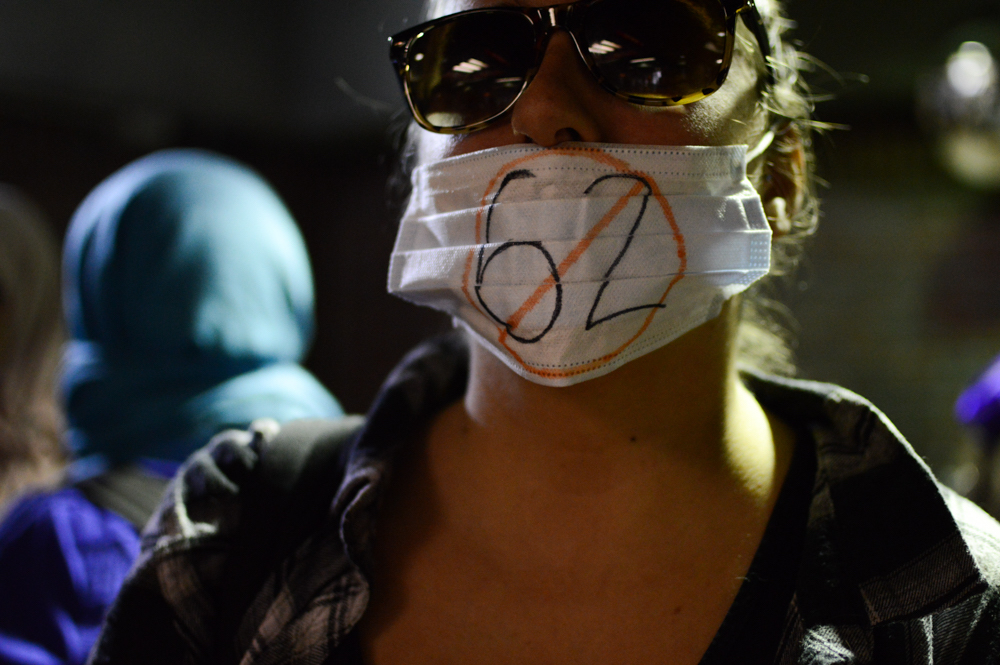AVEQ condemns religious neutrality law, Concordia admins uncertain of impact on campus
The Concordia Student Union (CSU) condemned Bill 62—a provincial religious neutrality law—in a motion passed at a special council meeting on Thursday, Oct. 19. The law—which was approved by Quebec’s National Assembly on Oct. 18—requires people to uncover their face when receiving public services or working in Quebec’s public sector.
The special council meeting was originally called to hire a new CEO, however, the motion to oppose Bill 62 was presented without warning and voted upon by CSU councillors.
“Our official position is we reject [the bill]. We demand the Quebec government change it because it’s unconstitutional,” said Ahmed Badr, the CSU’s external affairs and mobilization coordinator. He said it conflicts with the Canadian Charter of Rights and Freedoms.
Section 2a of the Canadian Charter of Rights and Freedoms states that everyone is entitled to fundamental freedom of conscience and religion.
“Normally [at] special council meetings, we don’t pass [a motion] unless we give them a notice beforehand, but we didn’t,” Badr said. However, he said the CSU council was supportive of the motion.
According to Badr, now is time for the union to take action. “We will have a petition and we will write letters to the [members of Parliament] who voted for it,” Badr said. “We need Concordia students to sign these letters, and we will send it to the [MPs] telling them that we denounce [the] new law.”
The letters will begin circulating for students to sign as early as Tuesday, Oct. 24, however, Badr said the petition release date is to be determined.
Over the weekend, Badr presented a motion at the Association for the Voice of Education in Quebec (AVEQ) congress for the association to condemn the law.
Following the CSU motion, AVEQ officially opposed the religious neutrality law as well. Sophia Sahrane, the AVEQ coordinator of education and research, said religious neutrality laws infrige on values that AVEQ has endorsed since its establishment. She said the organization takes a feminist, anti-racist and anti-discriminatory position.
Kristen Perry, AVEQ’s coordinator of mobilization and associative development, said the association will be releasing a public statement to announce and clarify their position against Quebec’s new law.
Response from administration
“Bill 62 is such a new law, we don’t even have the final text of the law, and we certainly don’t have any of the government’s requirements yet,” Concordia president Alan Shepard told The Concordian.
The bill applies to provincial public-sector services and provincially funded institutions, such as universities and schools, the CBC reported. According to the same source, Justice Minister Stéphanie Vallée advised that amendments be added to include municipalities, metropolitan communities and public transit organizations in the bill.
Shepard said the university has not been provided any guidelines or explanation of how to interpret or implement the law. He said he is not certain if the religious neutrality law affects Concordia.
“I’m in no rush to implement a law in which I have no regulations,” Shepard said. “So for now, it’s completely status quo—as if the law weren’t there.”
“The niqab is the first step. They will [eventually] move onto every other religious symbol,” said Bara Abuhamed, a Concordia industrial engineering student and former Muslim Student Association (MSA) executive. He said Bill 62 is likely the first step of many, and he wants to stop it before it starts.
Abuhamed said the fact that the bill is officially identified as a religious neutrality law is problematic. “It’s clear discrimination and a move against religious freedom,” he said.
“We’ve welcomed women before some other institutions, we’ve welcomed religious minorities—we’ve welcomed everybody,” Shepard said. “And we fully intend to keep welcoming everybody.”
Photo by Mackenzie Lad
